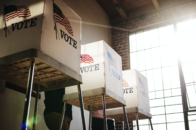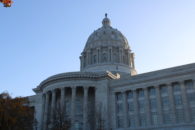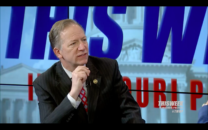I have been asked to summarize my thoughts about Jan. 6 on the eve of a new presidency. My head has been spinning since the stunning events of last week. My 40 years in public life have given me some unique perspectives, and I have been an amateur student of history for many decades. I have read many presidential and other biographies as well as historical accounts of national and world events. I have watched countless documentaries and have always preferred to watch movies based on true stories. I have read and written op-ed articles in the Post-Dispatch, Kansas City Star, The Missouri Times, and other publications.
The recuring heroes for me have always been the sober, unassuming leaders who have opposed intolerant, autocratic, dictatorial regimes. Washington and Hamilton et al replaced King George’s monarchy with the United States of America constitutional republic. Lincoln and Grant defeated the rebellion of the aristocratic south. FDR, Truman, Churchill, Marshal, Eisenhower, Nimitz, et al defeated the Nazi, fascist, and imperial Axis powers. Nelson Mandela et al defeated apartheid South Africa. The Kennedy brothers defeated apartheid in the southern states. Reagan and Pope John Paul II brought down the Berlin Wall.
I have had a lifelong fixation on World War II and the events leading up to and immediately following — which preceded my birth in 1948. I grew us as a child of the Greatest Generation during an unprecedented time of national unity and pride. My generation inherited an America mostly untouched by a world war that devastated Europe and Asia. As children, the only threat to our sense of invincibility was the threat of a Soviet atomic bomb.
The history of totalitarianism has existed in Russia from the Czars to Stalin and his Soviet successors — and now to Putin who rivals his predecessors with his iron fist autocracy. From 1914 to 1945, the world was for the most part either at war or in deep depression. Democracy was at very grave risk of failing, and every republic, except Switzerland, in mainland Europe did fail due to war or oppression in the ’30s. Great Britain was in the gravest danger first from within, and only a tremendous Royal Airforce and Navy effort prevented military capitulation to the fascist Nazi jackboot.
The U.S. system of a constitutional government of law barely survived a horrific civil war that killed nearly as many Americans as all the other wars we have ever fought. In addition, our republic was at a much greater risk than most people think during the Great Depression when communist elements from within and without were competing for American working men and women’s souls. Our isolationism was so great that we nearly got started too late to defend ourselves, and we were caught flat-footed by Japan on Dec. 7, 1941. Many U.S. citizens still wanted to stay out of the European war, but Hitler and Mussolini made it a moot point by declaring war on the U.S.
One of the pillars of our system of self-governance is the freedom of the press to criticize and form opinions on all levels of government: local, state, and national. Beware of any calls to disenfranchise any form of news. It is up to each of us to form our own opinion. I did not always appreciate the news coverage of my mayoral administration, but I would rejoin the Navy if I could to fight to defend their right to express their views.
The most important thing to remember in any society is that “nothing is unanimous,” and at any given time, a certain percentage of Americans will be on the wrong side of history. We have been fortunate that the American experiment of democracy has always had heroes who have inspired our better natures by standing up to tyranny in its many forms. But remember also that we have also had goats who have betrayed our cause. Each citizen must decide for themselves who is a hero and who is a goat and hope that when history judges that you were on the right side and that a majority of us got it right.

Thomas P. Schneider was the mayor of Florissant from 2011 to 2019. Prior to that, he served on the Florissant City Council from 1979 to 2011.











